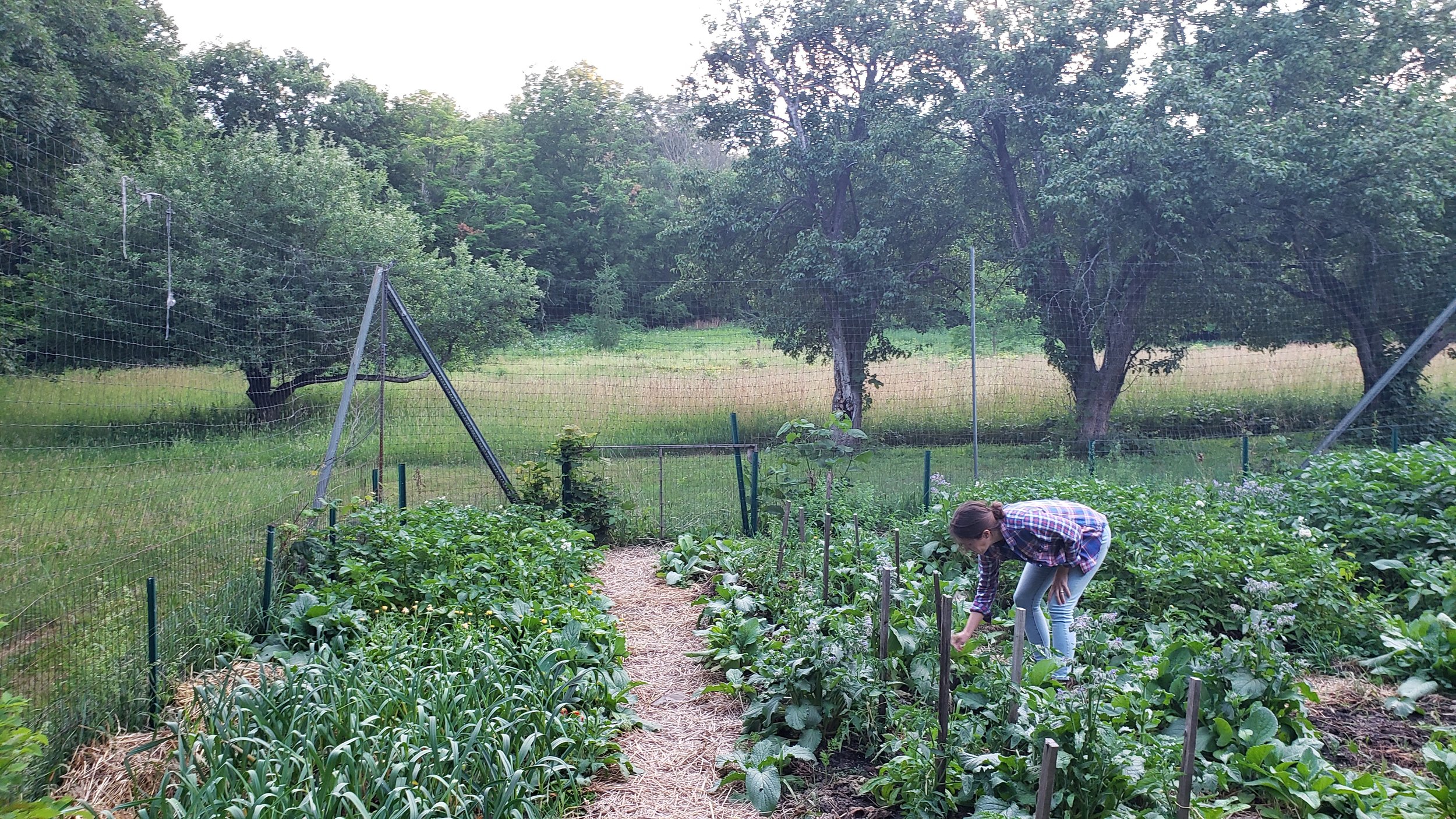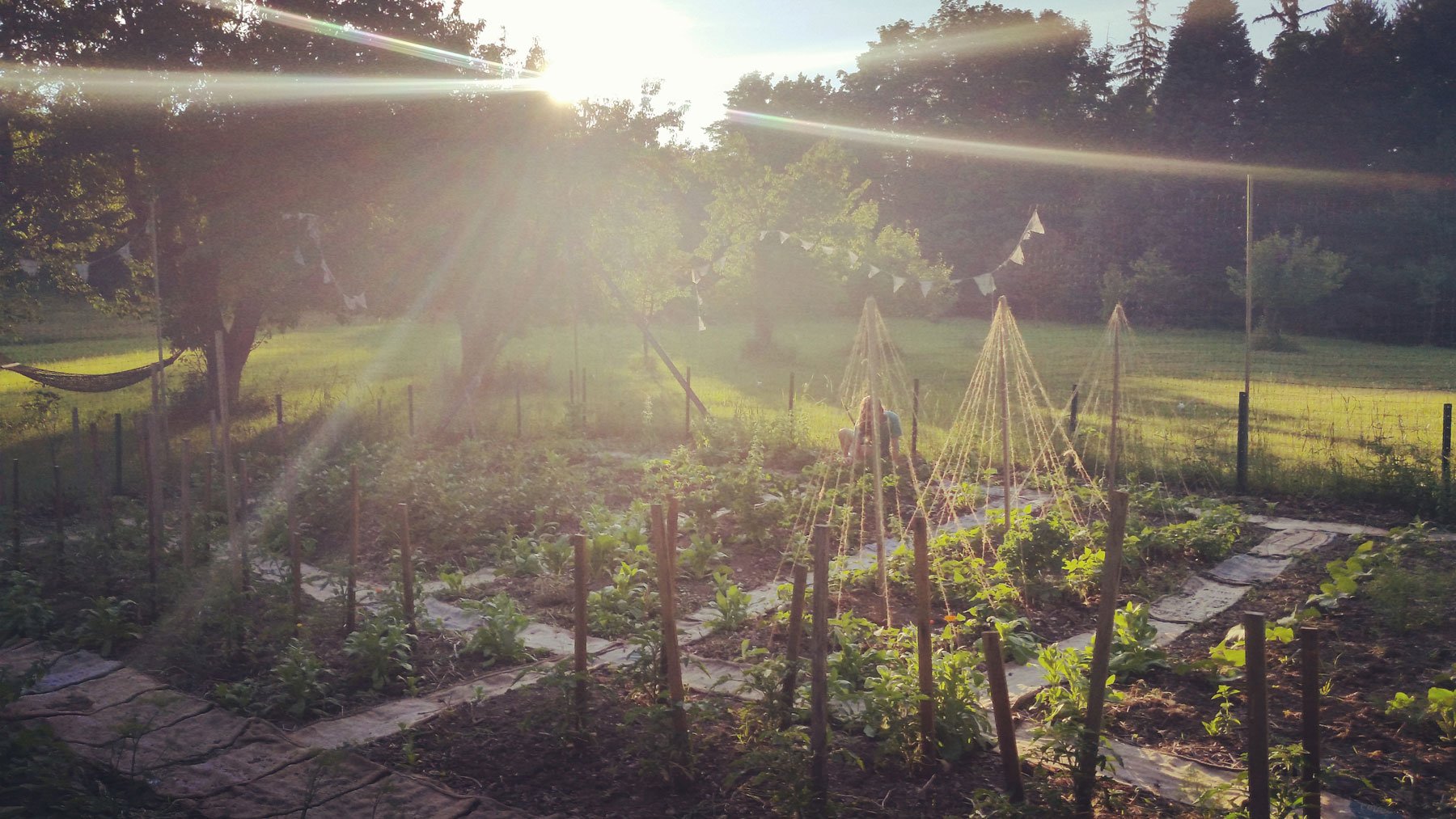+ OUR SEEDS +
Why are some seeds more expensive than others? As with most things it comes down to time and quality. Just like organic produce, organic seeds are more labor intensive. Where "conventional" farms can employ pesticides, organic farmers (no matter whether they're growing apples or seeds) use more time consuming techniques, such as hand-picking insects, introducing beneficial, predator insects, or by applying natural remedies such as hot pepper + garlic tea to discourage bugs. Instead of cheap chemically produced fertilizers, high quality (and in our case, homemade) compost is applied. A labor intensive process, but in the end, a healthier soil environment for plants, wildlife, the humans tending the land, and you.
Small scale farms like ours do nearly all of our work by hand instead of using large-scale petroleum intensive machines. Work like turning under the soil, hauling and spreading compost, planting seeds, weeding, watering, and harvesting is all done by human hands with old fashioned shovels, mattocks, rakes, and hoes, without the aid of machines. In our opinion this extra time and extra labor add to the quality of the seed or the produce that you're buying, not to mention adding to the quality of life for the wildlife living on the land, and for the people working there.
Heirloom seeds, also known as open-pollinated seeds, remain true to type and can be saved and passed down through generations, from farmer to gardener to friend. Once you buy an heirloom seed you'll never have to buy it again, as long as you save the seeds for the following year. Many store-bought seeds have been genetically modified and patented by large (typically agro-chemical) companies and will not grow true to type year after year. So if you liked growing a particular variety of tomato, you'll have to buy that seed variety each year. Often times organic gardeners prefer to purchase heirloom seeds because many of the so called "conventional" seed companies are owned by chemical companies that make most of their income from selling pesticides and herbicides.
By buying heirloom seeds, and especially organic heirloom seeds, you are supporting the farm-to-garden movement. Empowering small scale farmers to grow out these varieties, protecting the diversity of our seeds, and encouraging healthy pollinating techniques at a time when our pollinators are severely threatened. Organic heirloom farming in particular encourages healthy eco-system development by not relying on chemical fertilizers or pesticides, and instead focuses on building healthy soils, companion planting, and integrated pest management.
Please note: We are not a certified organic farm due to the cost prohibitive nature of the certification process. While this certification is vital to holding large and medium scale farms accountable, it is an unsustainable framework for micro-farms such as ours. Thankfully the USDA has made a certification exemption for small farms like ours. Also, we’re real humans, so if you have any questions about our processes just ask!




